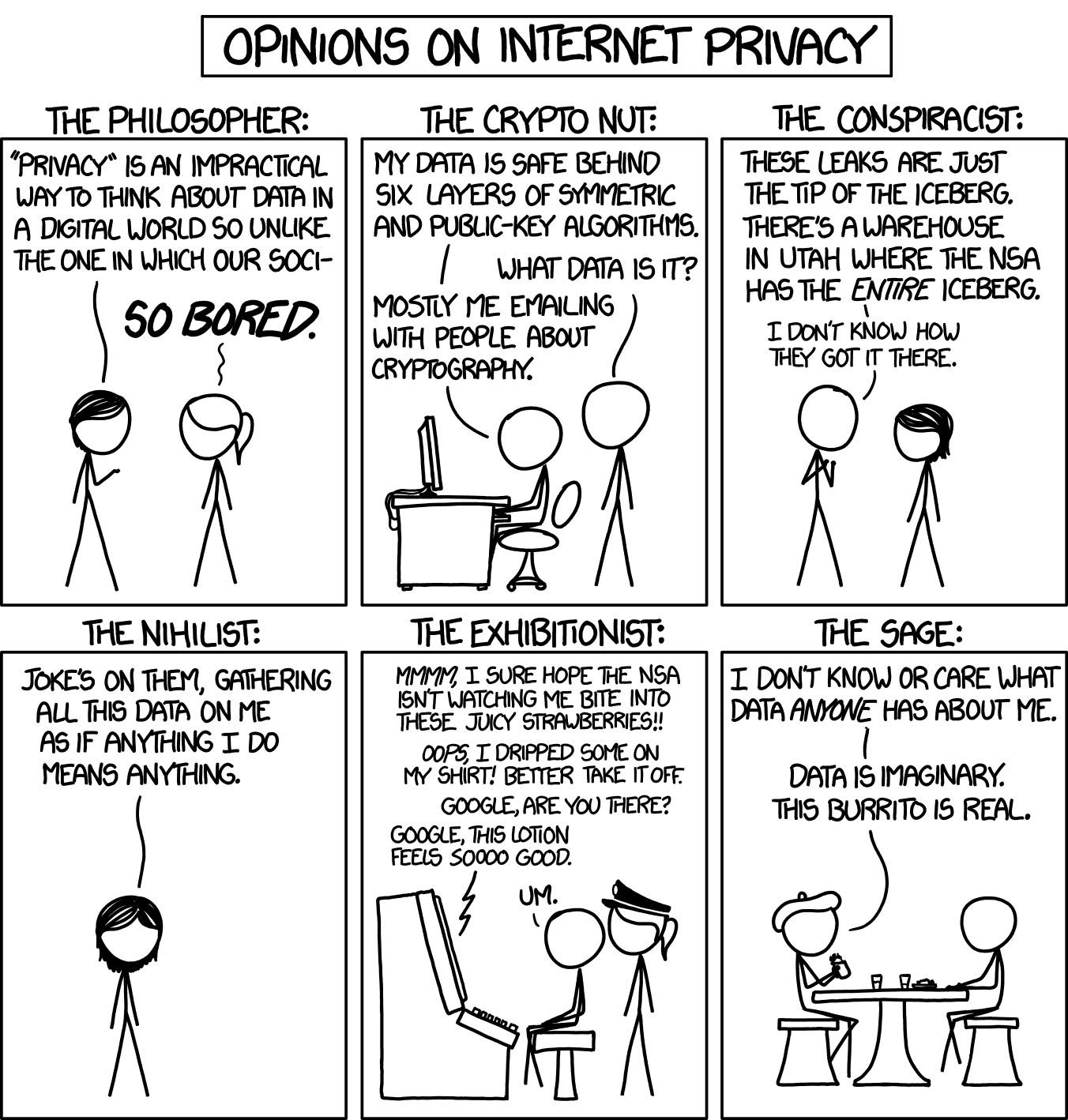Privacy and tracking
“I can’t believe you are wearing one of those,” they said while sneering at the Pebble watch I was wearing. Yes, that’s how someone introduced themselves to me at a conference last year. Apparently, I’m not allowed to wear smartwatches, or something. It wasn’t clear what their problem was or why they thought that was a good opening line. Best I can figure, it was some commentary on the hypocrisy of me wearing a smartwatch and claiming to be pro-privacy.
The thing is, I think I’m aware of how much information is out there about me, although I’m pretty convinced there’s even more than I think there is. The decisions we make about privacy and tracking are complicated. Do I take this 5% discount on something in return for having my purchases tracked? Do I participate in Facebook knowing they’re compiling a full dossier on me? Do I stay logged into Google? Does any of that matter?

We’re watched by corporations and they know a lot about us and what we do. Loyalty cards are ubiquitous and they’re purchase tracking devices. Many apps track us and send that data back to companies. Half of Palo Alto office space has been taken over by a secretive company called Palantir that is built on tracking and profiling people. Tracking is a fact of life.
Online we’re tracked all the time. Even if we try and avoid it, if we participate in almost anything online we’re tracked. In many cases, this is taken as implicit consent to be tracked. Being a part of a community we enjoy or using services that benefit us come with the price of tracking.
Many people don’t really understand how ubiquitous tracking is. I’m sure I don’t, and I believe everything I do is tracked somewhere by someone.
I pointed out earlier this week that the company Unroll.me was using the access they had to consumer mailboxes to sell data they extracted from emails. I also pointed out there are other companies with access to mailboxes and that many email marketers are the target market for the data they’re selling.
Return Path commented on my post and clarified how transparent they attempt to be in their various data products. I’m sure they are, I know a lot of the folks at Return Path and I trust them. But that doesn’t scale. I can’t personally know the executives at every company I do business with and trust they’re not out to invade my privacy.
It’s a fact that the modern lifestyle includes tracking. That doesn’t mean we shouldn’t pay attention to apps and what access they have. But it does mean if we want to fully participate and have access we need to accept the price is some privacy invasion and tracking. What unroll.me did might be unexpected, but it’s not unusual.

